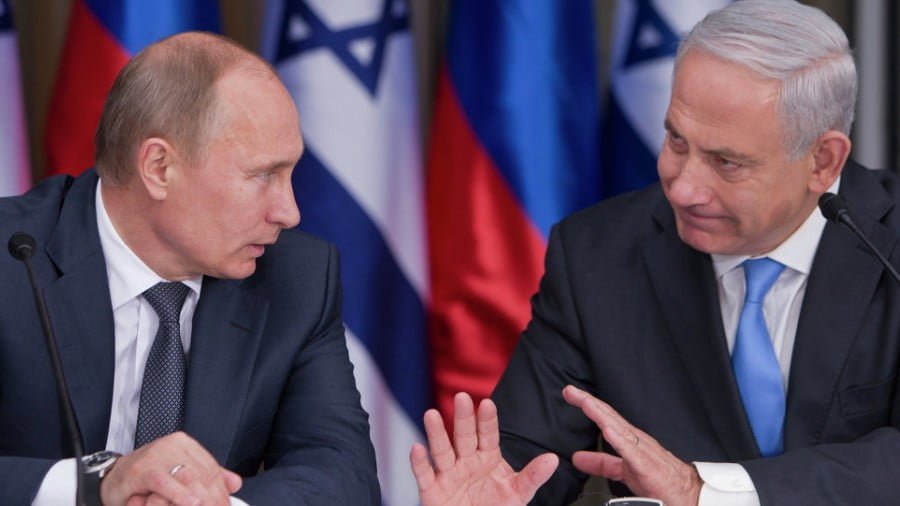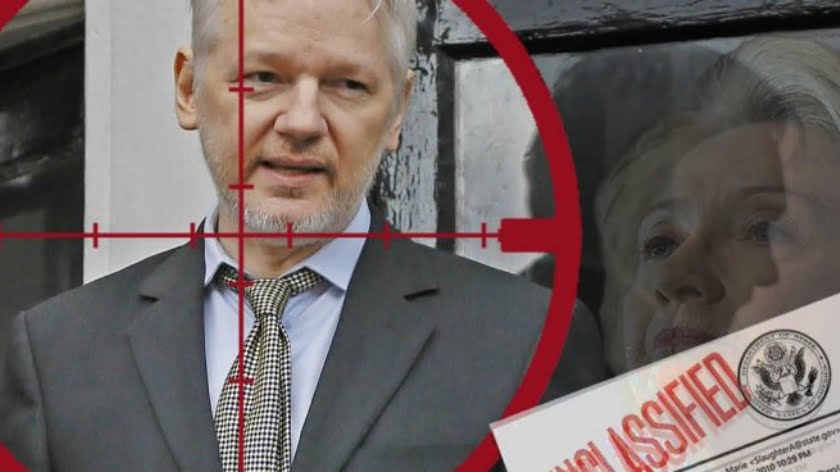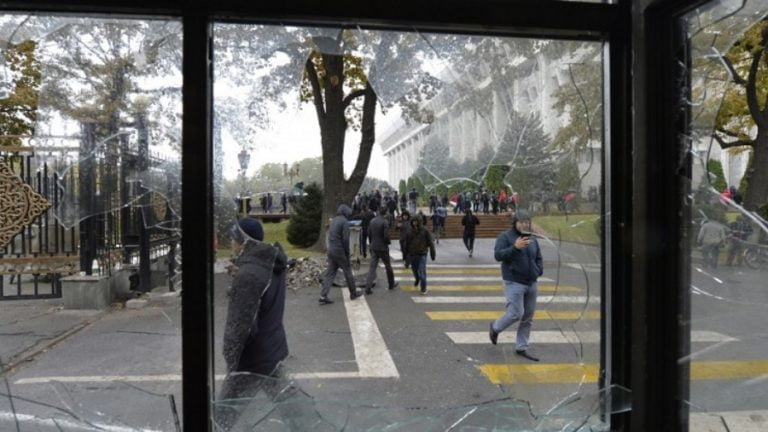The Latest “Putinyahu Rusrael” Summit Was The Most Important Yet
The outcome of the latest “Putinyahu Rusrael” summit was the most important yet because the Russian leader publicly agreed that his “Israeli” counterpart has “first-hand knowledge” of “what terrorism is about” and his Foreign Minister dramatically announced that the War on Syria is finally over, both of which have enormous implications for the changing balance of power in the Mideast that will likely continue to tilt the regional odds against Iran.
Netanyahu’s latest meeting with Putin was the most important yet because “Putinyahu’s Rusrael” (the portmanteau of both leader’s names and the political entities that they represent, the neologism of which refers to their unofficial alliance) agreed on two very important issues that will have enormous implications for the changing balance of power in the Mideast. The Russian leader publicly agreed that his “Israeli” counterpart has “first-hand knowledge” of “what terrorism is about” according the transcript of his comments as reported by the official Kremlin website, while the publicly financed international media outlet Sputnik reported that his Foreign Minister dramatically announced that the War on Syria is finally over. Taken together, both of these policy pronouncements will continue to make it more difficult for Iran to defend its interests in the region.
“Israel” “justifies” its hundreds of bombings against the IRGC and their Hezbollah allies on the basis of “anti-terrorism”, and it’s crucial to remember that Russia has “passively facilitated” each and every one through its overt military coordination with the self-professed “Jewish State”, something that Putin clearly alluded to when he said that “it is largely due to your efforts that our relations have acquired a new quality in both security and military cooperation issues” since “we all know how important this is, especially considering the persisting threat from international terrorism.” Leaving no ambiguity about what he was referring to, Netanyahu earlier in the day told the Russian media outlet RBK, as reported by Sputnik, that “this coordination [between the two countries’ militaries] has become possible only because President Putin and I respect each other.”
Per the Google Translated comments of the original Russian-language interview, he also said that “I consider this decision to coordinate military activity as one of the most important achievements for the state of Israel. First of all, I mean the creation of an international front against Iran’s nuclear weapons attempts, against the spread of its influence in our region, especially in Syria, and coordination with Russia, which allows us to counteract Iranian expansion. These are things that I highly value and in this context I value our relationship with President Putin.” He’s not lying either, especially about the last part regarding joint activities “to counteract Iranian expansion” seeing as how Russia not only allows “Israel” to bomb the IRGC in Syria with impunity, but refused to deny that it’s seeking Iran’s withdrawal from the country after the war.
In fact, Putin strongly implied as much in May 2018 while symbolically standing right next to Assad (who he was hosting in Sochi at the time) when he declared that “We proceed from the assumption that in view of the significant victories and success achieved by the Syrian Army in its fight against terrorism, and the start of a more active phrase of the political process, foreign armed forces will be withdrawing from the territory of the Syrian Arab Republic.” His Special Envoy to Syria Alexander Lavrentiev even said shortly thereafter that his boss’ remark “includes the Americans, Turks, Hezbollah, and of course, the Iranians” (per the Google Translated version of the report published by the publicly financed international media outlet RIA, Sputnik’s sister company). As such, Russia has made it known that it expects Iran to withdraw from Syria after the war ends.
Therein lays the pivotal relevance of Lavrov’s dramatic announcement that “the war in Syria has really come to an end” and that it’s now time to “promote the political process on settling the crisis to achieve stable and long-lasting stabilization of the situation in the country and the whole Middle East region” (per the aforementioned citation from Sputnik in the first paragraph of this analysis). Considering how Russian Security Council Secretary told his American and “Israeli” counterparts during their first-ever trilateral summit in June it’s very important for his country to ensure “Israel’s” security, especially because of the large Russian diaspora there (untranslated Russian comments from RT’s Ruptly video service here, English-language translation from “The Times Of Israel” here), this will naturally lead to Russia more actively (albeit “gently”) seeking Iran’s withdrawal from Syria.
In the event that Iran refuses to leave Syria (irrespective of whether or not it has Damascus’ permission to remain there), then Russia has signaled through the objectively existing and easily verifiable chain of evidence shared throughout this analysis that it will allow “Israel” to continue bombing the IRGC and Hezbollah there on the basis of carrying out “anti-terrorist” operations. This public wink-and-a-nod from Putin is designed not only to bolster Netanyahu’s “nationalist” credentials ahead of next week’s election, but to also put intense pressure on Assad to proactively take steps for preempting this scenario by beginning the irreversible process of requesting Iran’s dignified but “phased withdrawal” from the country. If he doesn’t, then “Putinyahu’s Rusrael” might “punish” him in an increasingly severe way until he eventually does what they both demand of him.
It might sound harsh to those indoctrinated by Alt-Media dogma and misled into wrongly believing that Putin is an “anti-Zionist crusader”, but the contemporary geopolitical reality is that he’s one of the most pro-“Israeli” politicians in history. As the author wrote in his conclusion to an analysis from June 2018, “when considering that everything that Russia is doing in the Mideast at this moment is to ensure the security of Israel (recently in open coordination with the US), there should be no doubt in anyone’s mind that President Putin is a proud philo-Semite driven by a combination of strategic and deeply personal motivations to see his peacemaking plans in the Holy Land succeed as his ultimate legacy to the rest of the world”, which is why the last “Putinyahu Rusrael” summit was so important because it signals the next phase of his envisioned end game for the region.
By Andrew Korybko
Source: Eurasia Future







